Yes, it is possible to add multiple int to an array, but you would need to have an array where each item is an Object rather than an int.
For example...
// the items to store in the array, which contain 3 ints
public class Bucket {
int number1 = -1;
int number2 = -1;
int number3 = -1;
public void addInt(int number){
if (number1 == -1){
number1 = number;
}
else if (number2 == -1){
number2 = number;
}
else if (number3 == -1){
number3 = number;
}
}
}
// the array, as used in other classes
Bucket[] bArray = new Bucket[6]; // 6 items in the array, where each item is a Bucket that contains 3 ints
// assigning ints into the array
bArray[2].addInt(56); // add the int '56' to the bucket at index '2' of the array
// You could also use other Array-like structures
ArrayList<Bucket> bList = new ArrayList<Bucket>();
Of course, if you don't always have <=3 items in a bucket, you could just change the Bucket class to use an array or a List as its variable rather than separate ints.
You could also use multi-dimensional arrays...
// creating the buckets
int[][] buckets = new int[6][3];
// assigning ints into the array
bArray[2][0] = 56; // add the int '56' to the bucket at index '2' of the array, position '0'
It would get a little messy, however, if you start playing around with different-sized buckets, and you'd need to do more error-checking to ensure that...
- The items in the bucket aren't empty when you try to access them
- When you're adding a number to a bucket, you need to detect the next position in the second dimension that is empty, so you don't overwrite the
ints that are already in there.
If is for these reasons why I would recommend using an Object-based array over a multi-dimensional array.
